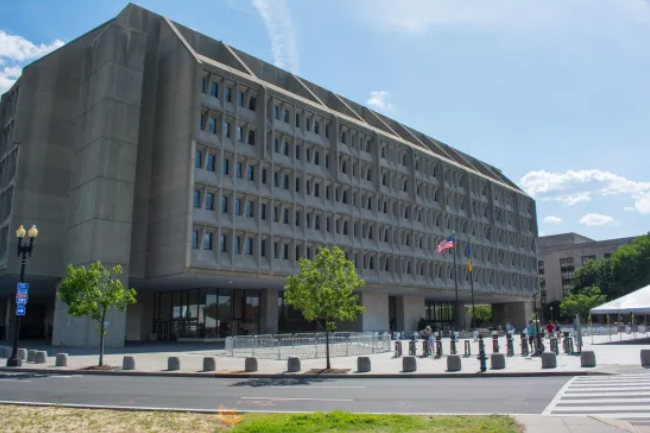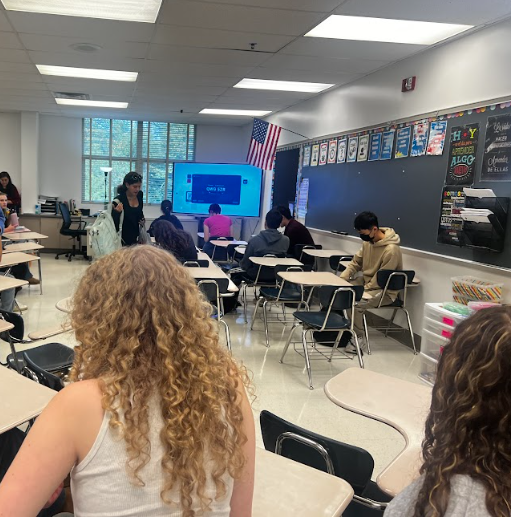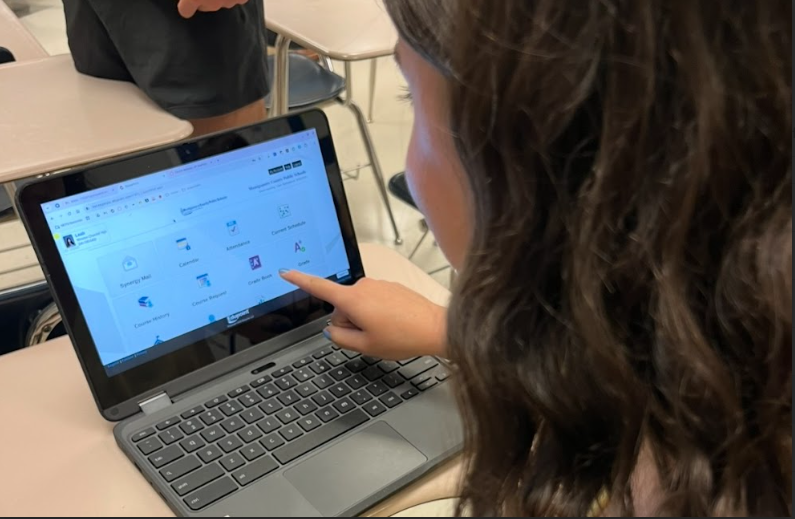The word “gender” has been used universally in academic and medical settings since the 1950s, but in 2025, this could all change. In late August, the U.S. Department of Health and Human Services (HHS) ordered 46 states and territories, including Maryland, to remove “gender ideology” from federally funded sex-education materials. The directive, issued by the Trump administration, states that the federal government will withhold or terminate federal funding from the Personal Responsibility Education Program (PREP) for states that fail to comply. Maryland and other states could lose portions of $81.3 million in PREP funding.
The federal policy directly conflicts with Maryland’s existing state protections for LGBTQ+ students, setting up a legal and educational challenge. Maryland law prohibits discrimination in public education based on sexual orientation and gender identity. The Maryland State Department of Education has issued guidance on using chosen names and pronouns, as well as creating inclusive school environments.
“This will be a difficult directive for MCPS and WCHS to follow, as our health curriculum and the components of instruction are clearly defined by both state law and county policy,” WCHS Principal John Taylor said. “At the moment, there are no plans to adjust our curriculum and make any changes.”
The HHS order specifically requires states to remove all instruction that suggests gender identity is separate from biological sex. Enforcement of the directive has already been demonstrated: California’s PREP grant, worth over $12 million, was terminated after the state refused to comply. Maryland schools now face a decision between adjusting their curriculum to meet federal rules or maintaining current practices and risking funding cuts.
“Currently, there are specific units dedicated to lessons in a health class about LGBTQ+, gender identity and sexual orientation,” WCHS sophomore Magnolia Wu said. “These topics are often also integrated with other units.”
For students, these lessons provide structured information on identity, relationships and health topics in an educational and non-biased way. Removing or restructuring these units could change how students learn about gender and sexual orientation, potentially leaving gaps in education for those who encounter these topics in their personal lives. According to research published in the Journal of Adolescent Health, LGBTQ+-inclusive curricula can improve student mental health, increase feelings of safety in school and reduce instances of bullying.
“This policy could cause a student’s view of others, as well as themselves, to become heavily marginalized,” Wu said. “Health class is an opportunity for students to be exposed to a wide variety of perspectives and experiences. This allows students to adopt a more unprejudiced mindset and become more open-minded.”
While Maryland’s policies aim to ensure that all students have access to affirming instruction, the federal directive introduces uncertainty for educators, who must balance state requirements, federal funding pressures and parental rights. In June, the Supreme Court ruled in Mahmoud v. Taylor that schools must allow parents to opt their children out of educational content that may conflict with their religious beliefs. The ruling came after MCPS parents found out that their children were reading books that contained LGBTQ+ characters and content that went against their religious views. However, this directive may cause outrage because the school is not respecting their children and their child is not being represented.
“The goal of this instruction is to ensure students understand the issue and can make sound decisions about these topics as they move into being adults and citizens,” Taylor said. “I would never be in favor of limiting students’ knowledge and not preparing them on this or any other topic.”
Maryland Attorney General Anthony Brown has affirmed that Maryland has updated state guidance and policies to support transgender students and ensure inclusive curricula. Public schools must navigate federal funding threats while complying with state law and protecting student access to comprehensive education. According to the American Public Health Association, comprehensive sex education that includes LGBTQ+ topics is associated with improved health outcomes and more responsible decision-making among students.
“Should schools prepare students only with core academic skills, or also help them navigate identity and real-world health issues?” WCHS Health Education teacher Tracey Sachs. “The challenge is finding the right balance and today’s Health curriculum is unfortunately not balanced.”
The federal directive focuses solely on biological sex, yet Maryland schools, including WCHS, are required to consider student well-being, inclusivity and adherence to state law. PREP funding supports educating adolescents and risks like teen pregnancies and STDs, but changes to the health education curriculum could influence how PREP and other programs operate.
“Health class is an opportunity for students to be exposed to a wide variety of perspectives and experiences,” Wu said.“This allows students to adopt a more unprejudiced mindset and become more open-minded.”









